Pharmaceutical Marketing and the Invention of the Medical Consumer
A look at Kalman Applbaum’s famed essay on choice, ethics, pharmaceutical marketing and the "new medical consumer."
In 2006, Kalman Applbaum published his highly cited – and perhaps highly debatable – essay entitled “Pharmaceutical Marketing and the invention of the Medical Consumer.” Some of the issues raised here are still relevant and widely discussed today.
The first paragraph refers to acclaimed writer and psychologist brothers Henry and William James, with the latter declaring in 1894 that “the authors of [medical] advertisements should be treated as public enemies and have no mercy shown.” A bold statement to say the least that sets the tone for the rest of Applbaum’s essay.
Subscribe for marketing insights via email
Pharma reports are consistent in that they suggest that pharmaceutical companies are spending more on marketing directly to the consumer than research, which is highlighted as a key issue in the essay. But this isn’t the main problem. What Applbaum does is demystify (or attempt to demystify) some of the assumptions at work in the "culture of marketing," more so in the context of explaining contemporary disease mongering.
We’ll include key references from within the essay, look at how the medical consumer has been established and provide some commentary for what is a stimulating essay on a highly sensitive topic. If you'd prefer to read Pharmaceutical Marketing and the invention of the Medical Consumer first, you can do so here.
THE PHARMACEUTICAL MARKET AND ITS CURRENT LANDSCAPE
The author refers to the pharmaceutical industry as a free market. But will, as we will find out, question whether if this is an actually a free market as many other markets away from big pharma.
A free market exists where consumer needs and wants (that vary according to the consumer) can be satisfied via choice, where this choice arises from a competitive industry comprising of various companies. This all seems acceptable, and in most industries all is well. But the pharmaceutical and healthcare industry is a little different and presents some issues governed by ethics. The key issues are as follows…
1. MARKETERS BY THEIR VERY NATURE
How marketers by their very nature – and not just in the pharmaceutical industry – always look exploit the basic needs and wants of people, translating those into corporate profits. As Applbaum elaborates: “According to the advertisements, the viewer's personal anxieties and dissatisfactions are best addressed by consumption. This same message lies at the heart of much pharmaceutical advertising.” Meaning that marketers of pharmaceutical companies as often exploiting the pain of those who are looking to ease suffering, in turn, suggesting a new meaning to the word "free."
2. EMERGENCE OF LIFESTYLE MARKETING
Lifestyle marketing is becoming increasingly popular and how this idea has been recently popularised through lifestyle drugs that also extend into other areas of medicine to “to the promotion of many of the blockbuster “maintenance drugs” intended for daily, lifelong consumption, such as drugs for allergies, insomnia, and acid reflux.” Referring originally to cosmetics, which now includes drugs, giving birth to the more self-service of drugs and medications.
The consumers themselves can purchase drugs without the needs for a prescription or a doctor, or even a desire to see a doctor. With a patient transforming into a consumer looking to physically (or even mentally) better him or herself, and the marketer looking to make that medical consumer aware of all the drugs available to achieve this goal. Essentially, changing how people see the role of drugs and how they are accessed.
3. DRIVEN BY COMPETITION
When the manufacturers of drugs become driven by marketing rather than treating patients. Applbaum agrees that competition among drug companies yields innovation and innovative drugs, but once this competition becomes a business driver (indicated generally by the high marketing spend of drug companies) then the “innovation comes to mean an elaboration of meaningless differences among a field of comparable “me too” products.” Manufacturers lose focus of their long-term objectives of developing new drugs and focus of producing and marketing rival products so that competing companies do not access large markets of patients (and therefore, market share) without competition.
These three factors combine to form the so-called new medical consumer.
THE INVENTION OF THE MEDICAL CUSTOMER
This critical outlook on the pharmaceutical industry and the drug manufacturers within paves the way for the new "consumer" to emerge. Since we now have access to choice, as well as an abundance of information (often by the pharmaceutical companies themselves) to help us make those choices, it is not difficult, as Applbaum puts it “for pharmaceutical companies and other privatized healthcare deliverers to convince us that it is empowering to think of ourselves not as patients but as consumers.” It is this influence, promoting familiarity with drugs, according to Applbaum, is what fuels the pharmaceutical industry as well as increase the drug companies’ influence over the consumer market.
This is where the wider supply chain, and the B2B element, becomes involved. As he elaborates: “This influence extends to clinical trial administration, research publication, regulatory lobbying, physician and patient education, drug pricing, advertising and point-of-use promotion, pharmacy distribution, drug compliance, and the legal and ethical norms by which company practices themselves are to be evaluated.”
And the promotion of these products and services are said to be done by those outside of normal distribution channels, such as the patients and the consumers of the pharma products themselves. The inclusion of patients in the distribution chain changes their role from recipients of medical care to active consumers of the latest pharmaceutical products.
ETHICS
The ethical justification for marketing within the pharmaceutical industry is something that is constantly in the minds of all working within the industry and is often discussed in publications. On this blog, we have previously looked at ways to achieve ethical marketing, market products in a more human way and avoid treating disease, pain and discomfort as an opportunity for profit.
Of course, the pharmaceutical industry does offer relief and treatment, but at the same time, will always look to increase this profit through marketing. How else can the pharmaceutical organisation sustain itself to produce new and innovative drugs, that may prove vital to human life? I think this is murky water.
Applbaum relates to his own experiences later on in the essay and notes that pharmaceutical executives and marketers for which he has come into contact with who, although believing they do good and perform a public service, are aggressively marketing their products in the aim of achieving ROI. I ask if this ROI, which can be invested back into R&D to discover new and potentially life-saving drugs, is this always a bad thing? This is the conundrum within the pharmaceutical industry.
APPLBAUM: CHOICE AN ILLUSION?
Product choice, as previously stated, provides a range of benefits for any industry. Especially when there are buyers and sellers present. But this is an industry like no other. Choice can sometimes become blurred. Drug companies integrate the patients (as well as the doctors) into the distribution channels, where the marketers see this as ethical. Where people's needs can best be determined and satisfied, giving the medical consumer outright choice. Or at least some choice. This choice is a key theme in Applbaum's essay, who questions whether this choice is actually an illusion?
Arguments such as these are common within the industry we operate within. They will probably always exist, in some form. For us working in this industry we will state that, even if the industry is not perfect (I question whether an industry so complex can ever be perfect), it does produce the innovative products that ease suffering and saves lives. I would struggle to find anyone who argues this.
I shall include Applbaum’s final sentence (yet, avoiding picking sides) to conclude this article: “For in our pursuit of a near-utopian promise of perfect health, we have, without realizing it, given corporate marketers free reign to take control of the true instruments of our freedom: objectivity in science, ethics and fairness in healthcare."
Kalman Applbaum’s full essay, entitled Pharmaceutical Marketing and the invention of the Medical Consumer, which is worthy of a read, can be accessed here.


